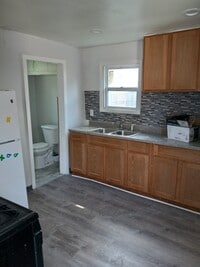Guideline Video
How much does it cost to rent Homes in Buffalo?
| Bedroom | Average Rent | Cheapest Rent | Highest Rent |
|---|---|---|---|
| Buffalo Studio Homes | $510 | $924 | $1338 |
| Buffalo 1 Bedroom Homes | $327 | $327 | $327 |
| Buffalo 2 Bedroom Homes | $482 | $482 | $482 |
| Buffalo 3 Bedroom Homes | $592 | $592 | $592 |
| Buffalo 4 Bedroom Homes | $632 | $632 | $632 |
Browse Top Homes in Buffalo
By Price
Cheap Buffalo Homes Under $500 Cheap Buffalo Homes Under $600 Cheap Buffalo Homes Under $700 Cheap Buffalo Homes Under $800 Cheap Buffalo Homes Under $900 Cheap Buffalo Homes Under $1000 Cheap Buffalo Homes Under $1500Explore Buffalo
Schools in Buffalo
Frequently Asked Questions about Buffalo
Is there a program in Buffalo that helps find affordable housing?
Yes, there may be programs in Buffalo that assist in finding affordable housing. These programs can be run by city or state governments, nonprofit organizations or private companies, such as HPD, NYC Housing Connect, Section 8 Housing, etc.
How can I find low-income Homes in Buffalo?
To find low-income Homes in Buffalo, you can search online for affordable housing sites like Allinfohome which specializes in finding affordable Homes, check with the nonprofit organization that specializes in housing assistance, or contact your city or state government for information about affordable housing programs.
How much should I pay for a low-income apartment in Buffalo?
The price of a low-income Homes in Buffalo will depend on various factors such as location, size and amenities. In general, however, affordable housing units are typically set as a percentage of a tenant's income, typically up to a maximum of about 30% to 40%.
What are the eligibility criteria for low-income Homes in Buffalo?
Eligibility criteria for low-income Homes in Buffalo will vary depending on the specific program or organization that provides affordable housing. Income level, household size and residency status are among the key factors in determining eligibility for affordable housing.
Can I apply for low-income housing at Buffalo if I have bad credit?
Yes, you can apply for low-income housing at Buffalo even if you have bad credit. However, you will need to clarify your situation with your landlord and provide relevant documents to prove you can afford to pay the rent.
How to find cheap Homes in Buffalo?
To find cheap Homes in Buffalo, you can search online for Homes listing websites, check with local real estate agencies or use search engines. Rentals allows you to filter by price range. You might also consider looking for Homes in less popular residential areas or areas farther from the city center. Above all, you can use Allinfohome which is a platform that provides information about cheap Homes at Buffalo
What are some of the most affordable neighborhoods to live in Buffalo?
The most affordable neighborhoods to live in Buffalo may vary depending on the specific city. You can explore neighborhoods farther from the city center or currently undergoing redevelopment that may offer more affordable housing options.
What should I look for in a cheap Homes in Buffalo?
When looking for a cheap Homes in Buffalo, it is important to consider factors such as location, safety, amenities and condition of the Homes. While you may be able to find a cheaper Homes in a less popular area, you should also make sure it meets your basic needs and is safe and comfortable to live in.
Can I negotiate the rent with the landlord in Buffalo?
Yes, you can negotiate rent with Buffalo landlords, especially if you have good credit or a steady income. However, keep in mind that landlords are not always willing to negotiate, and the rental market in some cities can be competitive, making it more difficult to negotiate rents.
Is there a government program in Buffalo that can help me find affordable housing?
Yes, there may be government programs in Buffalo that can help you find affordable housing. These programs may include public housing, Section 8 coupons, or rent assistance programs. You can contact your city or state government or local nonprofit organizations for more information about these programs.


